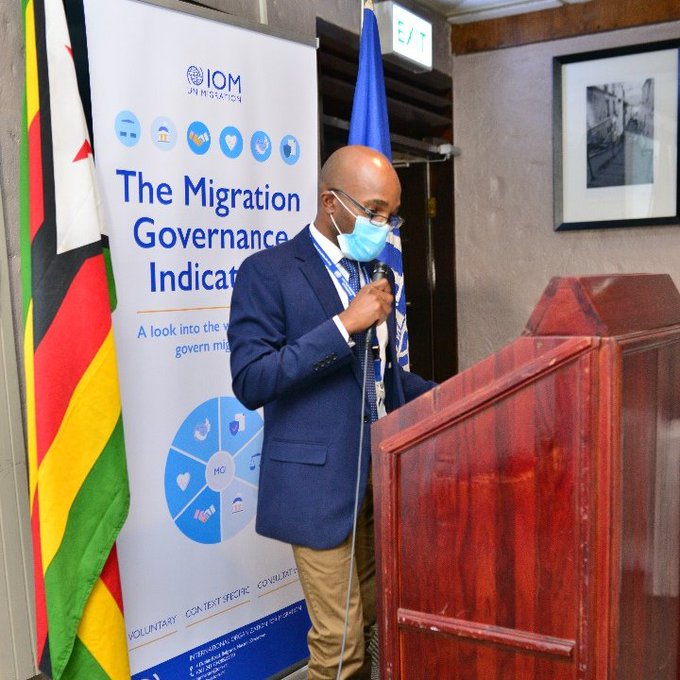In this era of unprecedented mobility, there is a need to facilitate orderly, safe, regular and responsible migration and mobility, the International Organisation for Migration (IOM) has said.
In a speech read on his behalf at the Migration Governance Indicators (MGI) Inter-ministerial Consultation at the Holiday Inn Hotel on 8 October 2020 by the progamme officer Rangarirai Tigere, IOM Zimbabwe Chief of Mission Mr. Mario Lito Malanca said migration management should be given an important place in any strategy aimed at achieving international development frameworks.
“As we live in an era of unprecedented mobility and contemporary challenges such as COVID-19, the need to facilitate orderly, safe, regular, and responsible migration and mobility is becoming increasingly relevant.
“The necessity to face the challenges and to maximize the opportunities that this mobility brings has been recognized with the inclusion of migration in the 2030 Agenda for Sustainable Development, which highlights the positive contribution of migrants to inclusive growth and development in, among others, target 10.7 “orderly, safe, regular and responsible migration and mobility of people, including through the implementation of planned and well-managed migration policies,” Mr. Malanca said.
To help countries understand what well-managed migration policies might look like in practice, IOM works with The Economist Intelligence Unit to develop the Migration Governance Indicators (MGI), a standard set of approximately 90 indicators, which helps countries identify good practices as well as areas with potential for further development and can offer insights on the policy levers that countries can use to develop their migration governance structures.
Mr. Malanca revealed that the goal of the meeting was to validate the draft MGI profile which will inform strategic actions aimed at addressing migration governance challenges in Zimbabwe.
He said the conduct of the inter-ministerial consultation is a key step to ensure that the outcomes of the MGI assessment are validated by key government stakeholders.
The MGI assessment will be a critical tool to assist the government to review and track its progress on commitments taken at national, regional, or international levels including notably: the finalization of the National Migration Policy (NMP); the assessment and reviews of regional and international frameworks including the domestication of Migration Dialogue for Southern Africa (MIDSA) Ministerial Meeting recommendations in Namibia, July 2019 and outcomes, the Global Compact for Migration, Sustainable Development Goal (SDG) frameworks and the development of the next United Nations Sustainable Development Cooperation Framework (UNSDCF).
Crucially the MGI assessment provides a baseline that will inform the contributions of migration to the National Development Strategy (NDS).
The MGI will enable discussions between different ministries and stakeholders which can help build policy coherence and can inform the government’s migration priorities.
These priorities can be translated into measurable goals and formulated into clear action plans to advance comprehensive migration governance structures. Through activities and projects, IOM can support the government in the achievement of those goals, using the MGI as a baseline to track progress.
MGI follow-up assessments can be conducted to update the Migration Governance Profile and report on progress made toward the achievement of national and international commitments, such as the GCM and SDGs
For example, governments can use this information for their Voluntary National Reviews to present good practices and actions that have been taken or planned to address the gaps highlighted in the Migration Governance Profile.
The benefit of the MGI will exceed the results of the research. It is a foundation for future work on policy development.
The Inter-Ministerial Committee on Migration is chaired by the Ministry of Home Affairs and Cultural Heritage. The committee meets on a quarterly basis and is tasked with addressing issues of coherence and coordination among the policies of relevant ministries.






